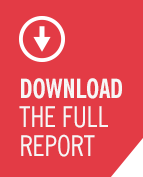Turkey’s Local Elections: Actors, Factors, and Implications
The March 30 local elections will be Turkish voters’ first opportunity to respond to recent political turbulence
On March 30, 2014, Turks will vote in municipal elections amid an ongoing political conflict within the Islamic conservative movement between two former allies turned bitter foes. Though sharp divisions within Turkish society are hardly new, the fault line along which the current clash is being contested opened up only within the last three years. These elections, however, are unlikely to speed its resolution.
As recently as five years ago, the main division animating Turkish politics appeared to be the one between the secular, nationalist Kemalist establishment and the Islamic conservative movement. For many decades, as the military repeatedly intervened in politics, Turkey’s democratic progress was interrupted in the name of preserving its secular, liberal order. This struggle continued after the Islamic-rooted AKP came to power in 2002, but with the roles reversed. Thus, it was still along the secular-Islamist fault line that the 2007 presidential election was fought. And in the following years, the flashpoints in Turkish politics included the debate over the Islamic headscarf, the efforts by secularist prosecutors to ban the ruling AKP from politics, and the alleged attempts by secularists in the military and in society to plot coups against the AKP government.
In this battle, the Western consensus was that Prime Minister Erdo?an and the AKP represented a democratic force pitted against the authoritarian remnants of the old, Kemalist order. Opening Turkish society to the freer practice of Islam, the AKP argued and international observers believed, was a gateway to a more vibrant civil society and pluralistic polity. Even those who questioned the AKP’s tactics?such as Erdo?an’s confrontational tone, concentration of power, or abuses of justice in prosecuting alleged coup-plotters?often saw this as a necessary evil in the battle to rid Turkey of what was known as “military tutelage.”
On its current trajectory, so consumed by its internal struggle that it can hardly focus its energies on a constructive foreign policy, Turkey is unlikely to be a strong ally for the United States.
This particular conflict came to an end with the 2010 constitutional referendum. The AKP had already survived attempts to close it down and succeeded in imprisoning hundreds of alleged coup-plotters. The popular endorsement of Erdo?an’s amendments?58 percent of Turks voted in favor of the changes that, among other things, revoked protections from prosecution that military coup leaders had previously enjoyed?marked the defeat of the old secularist order. Turkish liberals, and their Western supporters, now hoped that the AKP would fulfill its promises and begin rapidly strengthening Turkey’s democratic institutions and rule of law. But it was not to be. Quite to the contrary, over the last three years Turkish democracy has deteriorated rapidly and a new political fault line has opened up. This rift, however, is within the Islamic conservative camp.
Erdo?an’s determination to build a system of one-man rule, with himself at the center, and remove any competition, including his former allies, is the proximate cause of this new dividing line in Turkish politics. As soon as the 2010 referendum had been won, Erdo?an’s actions were geared toward this goal. His plan was two-fold: first, create, via new constitutional amendments, a super-presidential system of government in Turkey, one devoid of the checks and balances that, as Erdo?an put it, reduced the “effectiveness” of government; second, accede to the newly-empowered post of president himself. The plan’s success, however, required total control over the party.
Share
Read Next
Downloads and Resources
Support Research Like This
With your support, BPC can continue to fund important research like this by combining the best ideas from both parties to promote health, security, and opportunity for all Americans.
Give Now